Top Graphic Design Agencies in Vancouver
Graphic design agencies are visual experts who bring concepts to life through striking designs, from logos to promotional materials. They combine creativity and technical expertise to shape the visual aesthetics of brands and projects.
A graphic design agency is a professional service that specializes in creating visual content to communicate messages effectively. These agencies work on a range of projects, from branding and marketing materials to digital and print designs, ensuring businesses convey their values and objectives visually.
What Do Graphic Design Agencies Do?
Graphic design agencies offer creative solutions tailored to meet their clients' needs. They combine art and technology to produce designs that captivate audiences and reinforce brand identity. Their work often includes:
Developing logos and brand guidelines.
Designing marketing materials like brochures, posters, and flyers.
Creating website layouts and user interface designs.
Producing digital assets for social media campaigns.
Crafting packaging designs that stand out on shelves.
Key Services Offered by Graphic Design Agencies
Graphic design agencies provide a variety of services to help businesses stand out in competitive markets. Some of their key offerings include:
Brand Identity Design: Creating logos, typography, color schemes, and visual standards.
Print Design: Designing brochures, business cards, posters, and other printed materials.
Web and App Design: Crafting layouts and interfaces optimized for user experience.
Advertising Design: Producing engaging visuals for digital and traditional advertising campaigns.
Packaging Design: Developing packaging that resonates with target audiences.
Motion Graphics: Creating animations and videos for marketing and storytelling.
Importance of Localized Expertise in Vancouver
When hiring a graphic design agency, localized expertise in Vancouver can be a significant advantage. These agencies understand the cultural nuances, market preferences, and trends specific to Vancouver, allowing them to create designs that resonate with local audiences. Their knowledge of local regulations and industry standards further ensures compliance and relevance.
How We Ranked the Best Graphic Design Agencies
Criteria Used for Evaluation:
Portfolio Quality: Assessing the creativity, originality, and diversity of previous projects.
Client Reviews: Evaluating feedback and testimonials from past and current clients.
Industry Experience: Considering the agency’s years of expertise and familiarity with various industries.
Local Market Understanding in Vancouver: Determining their knowledge of Vancouver's unique business landscape and audience preferences.
Methodology for Selecting Top Agencies:
We conducted extensive research to identify agencies that excel in creativity, reliability, and professionalism. Each agency’s performance was measured against our criteria, ensuring our list represents the best in the industry.
Benefits of Hiring a Graphic Design Agency in Vancouver
How They Can Help Businesses Grow
A professional graphic design agency in Vancouver can elevate a brand’s presence by delivering visually compelling materials that attract and retain customers. Their expertise ensures consistent and memorable branding across all channels, helping businesses stand out from competitors.
Specific Benefits Tailored to the Vancouver Area or Market
Designs that reflect Vancouver's unique culture and demographics.
Localized campaigns that speak directly to the target audience in Vancouver.
Access to regional insights that influence purchasing behaviors.
Tips for Choosing the Right Firm
Factors to Consider
Budget: Ensure the agency’s pricing aligns with your financial resources.
Niche Expertise: Look for agencies experienced in your specific industry.
Communication Style: Choose a firm that aligns with your preferred way of working.
Questions to Ask During Consultations
What is your approach to understanding our brand?
Can you share case studies or examples of similar projects?
How do you measure the success of your designs?
Importance of Alignment with Your Brand’s Goals
Selecting a graphic design agency in Vancouver that understands your business objectives is crucial for achieving impactful results. Look for a partner who prioritizes collaboration and demonstrates a clear commitment to bringing your vision to life.
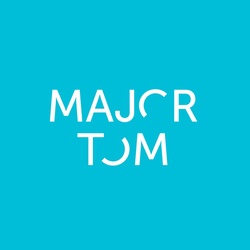
Major Tom Agency

OptiRank SEO Agency Vancouver
Dominate the Search Results with Our Effective SEO Strategies!

Digital agency Skyrocket
A digital agency in Vancouver

Deep Consulting LLC
HuBrowser: Native AI Browser
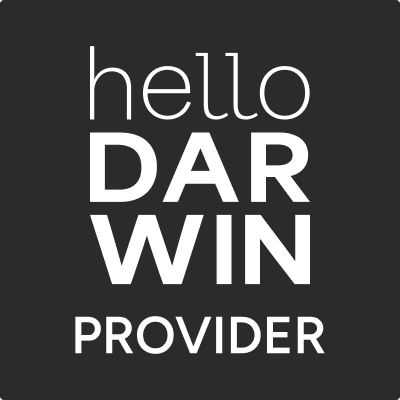
CQLsys Technologies Pvt. Ltd.

Tugboat Group
Create attractive communication tools
Discover the graphic design experts in Vancouver
Graphic design for communication fuses creativity and strategy to translate complex concepts into eye-catching, understandable visuals, facilitating effective message transmission.
Graphic design, an essential asset

Alana McFarlane Design Inc.
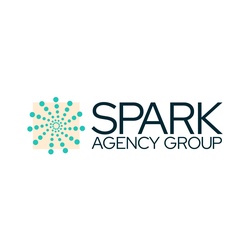
Spark Agency Group
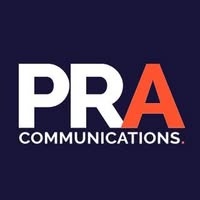
PR Associates National Communications Inc.

Webilize Applications

Geeky Marketing

ASC Creative Ltd.
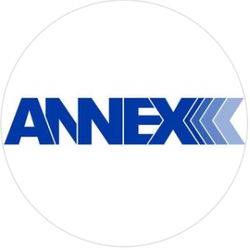
Annex Consulting Group
Have questions about our Graphic Design Agencies in Vancouver?
Who is helloDarwin?
- Tailored Matching: Utilizing advanced matching algorithms and industry insights, it aligns your project's specific requirements with the expertise, creative style, and capabilities of graphic design agencies, ensuring a custom fit.
- Efficiency in Resource and Time Management: The platform presents a curated list of pre-vetted agencies specializing in graphic design, streamlining the search process and saving you time and effort.
- Quality Validation: Through client testimonials, ratings, and reviews, it offers a layer of confidence in the agencies' quality, aiding in making an informed choice.
- Dedicated Support: Some platforms provide personalized assistance throughout the selection process, helping ensure the agencies not only meet your technical needs but also match your project's vision and ethos.
What is graphic design?
Why work with a graphic design agency in Vancouver?
Several advantages
- Specialized expertise: Graphic design agencies bring together qualified visual design professionals, guaranteeing high-quality, industry-standard results.
- Innovative creativity: Experienced graphic designers bring unique creative perspectives to create original and memorable visuals, helping brands stand out in a competitive environment.
- Consistency and coherence: Graphic design agencies develop and maintain a consistent visual identity across various media, ensuring a uniform presentation of the brand across all channels.
- Saves time and effort: Outsourcing graphic design to an agency allows companies to focus on their core business while benefiting from professional workmanship, which can be more efficient than managing design in-house.
- Access to a wide range of skills: Graphic design agencies offer a wide range of skills, from logo design to website creation, enabling companies to meet different needs in one place.
What are best practices in graphic design?
Some best practices
- Balance: Distribute visual elements harmoniously throughout the space to create a visually balanced and pleasing composition.
- Contrast: Use contrasting colors, sizes and shapes to highlight certain elements and create a strong visual impact.
- Brand consistency: Ensure that all graphic materials respect the brand's visual identity, using the same color codes, typography and distinctive elements.
- Negative space: judiciously integrate empty space around elements to improve legibility and create a sense of clarity and openness.
- User testing: Subject designs to user testing to assess usability, comprehension and impact, so that improvements can be made based on concrete feedback.
Why is good corporate branding important?
What services does a graphic design agency in Vancouver offer?
Several services
- Motion design: Creation of animations and videos to bring graphic elements to life, ideal for online advertising and dynamic presentations.
- Infographics: Design of visually appealing infographics to simplify communication of complex information.
- Illustration: Creation of customized illustrations to visually accompany content, whether in books, magazines or websites.
- Branding consultancy: Development of branding strategies, including brand positioning, visual identity and guidelines to ensure consistency across all media.
- Graphic design for social networks: Creation of visuals adapted to social platforms to reinforce the brand's online presence and encourage engagement.
What is a coherent visual identity?
What are the elements of corporate branding?
The visual elements of a brand image
- Logo: The central element of visual identity, visually representing the brand in a distinctive and recognizable way.
- Color palette: A set of specific colors used consistently to reinforce visual recognition and association with the brand.
- Typography: The fonts chosen for the brand's communications, reflecting its tone and style.
- Slogan/tagline: A short, memorable phrase or expression that encapsulates the essence of the brand and its message.
- Imagery/Visuals: The images, photographs and illustrations used to visually represent the brand and its values.
What tools are used by graphic design agencies in Vancouver?
Examples
- Adobe Photoshop: Image retouching and graphic design software widely used for manipulating and editing images.
- Adobe Illustrator: A vector-based design tool for creating illustrations, logos and scalable vector graphics.
- Adobe InDesign: Page layout software used to create documents such as brochures, magazines and books.
- Sketch: A design application for user interfaces and digital experiences, popular with interface and user experience designers.
- Canva: A user-friendly online platform for graphic design, offering ready-to-use templates for various media such as social networks, presentations and posters.
What is a visual strategy?
Visual strategy in stages
- Analysis and research: Examine the market, target audience and competition to understand needs and expectations.
- Define visual identity: Determine the key elements such as logo, colors, typography and visuals that will represent the brand.
- Guideline development: Create detailed guidelines for the consistent use of visual elements across different media.
- Implementation: Apply visual elements in the creation of communication and marketing materials.
- Evaluation and adjustment: Monitor the effectiveness of the visual strategy, gather feedback and make adjustments accordingly.
What makes a good logo?
How is AI impacting the world of graphic design?
- Automation and Efficiency: AI tools have enabled a higher level of automation in design tasks that were traditionally manual and time-consuming. This includes tasks like resizing images, color correction, and simple layouts, allowing designers to focus on more creative and complex aspects of their projects.
- Enhanced Creativity: AI can analyze vast amounts of data and generate creative design elements that can inspire or be directly used by designers. This includes generating new concepts for logos, layouts, and even typographic elements, offering designers a broader palette of creative options.
- Customization and Personalization: AI enables designs to be more easily customized and personalized for specific audiences or customers. By leveraging data, AI can help tailor the design elements to better resonate with different demographics or individual preferences, enhancing the effectiveness of marketing campaigns.
- Accessibility: Tools powered by AI have made design more accessible to non-designers, allowing them to create high-quality visuals without extensive training. This democratization means that more people can execute design tasks, potentially reducing costs and speeding up production times.
- Predictive Design: AI systems can predict trends by analyzing current and past design trends. This predictive capability can be a powerful tool for designers who want to stay ahead of the curve, allowing them to produce work that is both relevant and innovative.
- Interactive and Responsive Design: AI is facilitating more interactive and responsive designs, particularly in web and app development. AI algorithms can help create user interfaces that adapt to user behavior and provide personalized experiences.
- Ethical and Practical Challenges: As AI integrates more deeply into graphic design, it also raises ethical questions concerning originality and the devaluation of traditional design skills. There is also a practical challenge in ensuring that AI tools enhance rather than replace human creativity and insight.